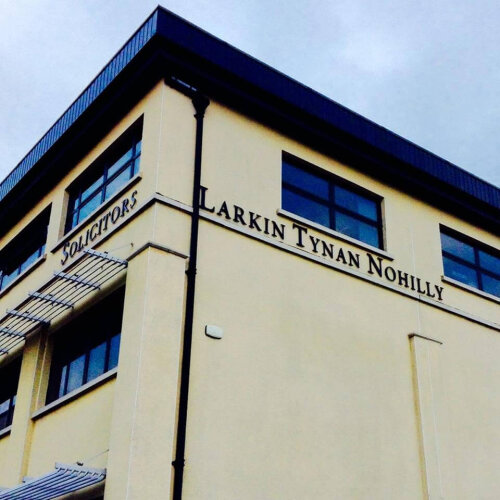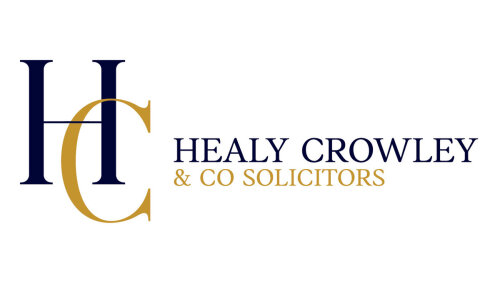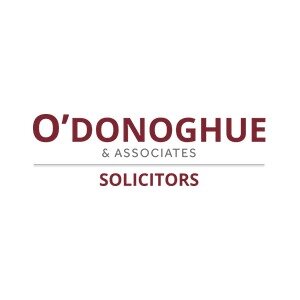Best Government Relations & Lobbying Lawyers in Ireland
Share your needs with us, get contacted by law firms.
Free. Takes 2 min.
Or refine your search by selecting a city:
List of the best lawyers in Ireland
About Government Relations & Lobbying Law in Ireland
Government relations and lobbying in Ireland involve interacting with the government or its official representatives to influence legislative and regulatory actions. This area of law is crucial for businesses, non-profit organizations, and individuals seeking to engage in advocacy or communicate their interests to policymakers. The practice is regulated to ensure transparency and ethical conduct in interactions between lobbyists and public officials.
Why You May Need a Lawyer
Legal assistance in government relations and lobbying may be necessary for several reasons. Engaging a lawyer experienced in this field can help ensure compliance with the 2015 Regulation of Lobbying Act, which mandates transparency in lobbying activities. A lawyer can also guide strategy development for effective communication and advocacy, help navigate complex regulatory environments, and protect your organization against legal challenges that may arise from non-compliance with the lobbying laws.
Local Laws Overview
The principal legislation governing lobbying in Ireland is the Regulation of Lobbying Act 2015. This Act requires individuals, organizations, and firms engaged in lobbying to register and disclose their lobbying activities through an online portal maintained by the Standards in Public Office Commission (SIPO). The Act defines lobbying as any communication with designated public officials concerning legislative matters. It aims to enhance transparency by requiring lobbyists to file regular reports detailing their advocacy efforts. Understanding the provisions of this law is vital for anyone involved in governmental advocacy to ensure compliance and effective engagement.
Frequently Asked Questions
What is considered lobbying under Irish law?
Lobbying refers to communications with designated public officials regarding legislative or policy matters, primarily aimed at influencing the outcome of those matters.
Who needs to register as a lobbyist?
Individuals, organizations, or firms that engage in lobbying activities are required to register with the Standards in Public Office Commission, if they exceed certain communication thresholds.
What entities are exempt from registering under the lobbying Act?
Local interest groups, trade unions, and non-commercial fee-charging advocacy bodies, under specific conditions, may be exempt from registering.
How often must lobbyists file their reports?
Registered lobbyists must file returns every four months, detailing lobbying activities and communications made during the return period.
What information must be included in the lobbyist's report?
The report should include details about who is being lobbied, the topic and purpose of the lobbying, and communications made.
What are the penalties for failing to comply with lobbying laws?
Non-compliance may lead to administrative sanctions, fines, or restrictions on future lobbying activities.
Are lawyers required to register as lobbyists?
Lawyers must register if their activities meet the criteria for lobbying as set out in the legislation and if they are acting on behalf of clients in a lobbyist capacity.
How does lobbying differ from general advocacy or engagement?
Lobbying typically involves targeted, strategic communications aimed directly at government officials, while advocacy might involve broader, public-facing efforts.
Can individuals lobby on a personal basis?
Yes, individuals can engage in lobbying; however, if their communication meets the criteria outlined by the law, they must register accordingly.
Where can I find the register of lobbyists?
The register of lobbyists is accessible through the Standards in Public Office Commission's (SIPO) website, which provides a comprehensive list of registered lobbyists and their activities.
Additional Resources
For further insights and guidance, consider consulting the Standards in Public Office Commission (SIPO), the Department of Public Expenditure and Reform, or legal publications focused on administrative or public law. Organizations such as Transparency International Ireland can also offer guidance on ethical lobbying practices.
Next Steps
If you require legal assistance in government relations and lobbying, it is advisable to consult a lawyer specializing in this field. Begin by researching law firms with expertise in administrative and public law or those with a dedicated department for lobbying and government relations. Initial consultations can help clarify your legal standing and guide your strategy in engaging with government officials effectively and lawfully.
Lawzana helps you find the best lawyers and law firms in Ireland through a curated and pre-screened list of qualified legal professionals. Our platform offers rankings and detailed profiles of attorneys and law firms, allowing you to compare based on practice areas, including Government Relations & Lobbying, experience, and client feedback.
Each profile includes a description of the firm's areas of practice, client reviews, team members and partners, year of establishment, spoken languages, office locations, contact information, social media presence, and any published articles or resources. Most firms on our platform speak English and are experienced in both local and international legal matters.
Get a quote from top-rated law firms in Ireland — quickly, securely, and without unnecessary hassle.
Disclaimer:
The information provided on this page is for general informational purposes only and does not constitute legal advice. While we strive to ensure the accuracy and relevance of the content, legal information may change over time, and interpretations of the law can vary. You should always consult with a qualified legal professional for advice specific to your situation.
We disclaim all liability for actions taken or not taken based on the content of this page. If you believe any information is incorrect or outdated, please contact us, and we will review and update it where appropriate.
Browse government relations & lobbying law firms by city in Ireland
Refine your search by selecting a city.

















